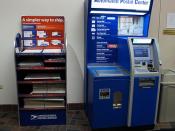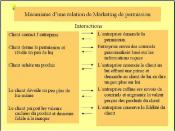New technologies have always allowed us to do things faster, more efficiently and more professionally than ever before. Generally, every new technology is a step forward for speed and productivity. The speed, usage, reliability, and expense make electronic mail more desirable than our general postal system. Electronic mail, generally called e-mail, enables users to create, transmit, and read written messages on his/her computer. E-mail has become a popular way to communicate all over the globe for instance; over 147 million people in the U.S. use email almost every day.(eMarketer 2006) In the past century organizations did not have this useful and reliable way to communicate; they either sent letters or made phone calls. This technology is improving the way of how communication is being conducted in many organizations. E-mail has become so popular by its essential use, which is more reliable in our time. Moreover, e-mail is known to be cheap, fast, easy, and a satisfying way of communicating.
To send e-mail the sender must first type the information in a computer he/she can decide whether to save the messages or send it immediately. For example, organizations can use an online service like AOL, and chat with employees or send them e-mails instantly. Automatically, their name will be on a server and once they are online, you can see their name and send them e-mails, which only take seconds to receive. Furthermore, 77% of the daily sampled population says E-mail remains the most popular application. (Pew Internet and American Life Project 2006)You can also apply the very same concept to a different type of organization like for example a phone company that gives instant pin number so consumers can call their loved ones out of the country. The phone company would simply send the pin number via e-mail and...


